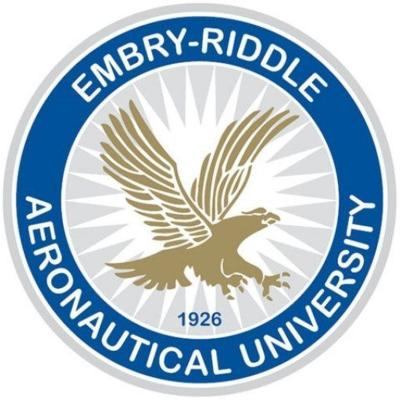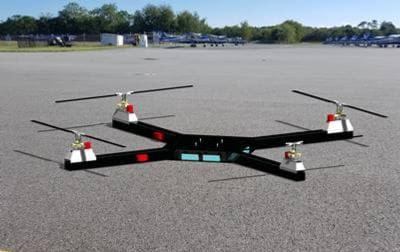Mon, Dec 27, 2021
Receives FAA Safety Research Grant To Design Testing Procedures for Certification
The Department of Aerospace Engineering at Embry-Riddle Aeronautical University has added some more prestige to the institution as a hub of aviation safety research with an FAA grant to study elements of the eVTOL revolution to come. The study is funded by $625,000 to "enhance the safety of a new class of electric propulsion-powered aircraft."

The research will aim to establish safe guidelines and pathways to certification, as well as the ways that their drivetrains differ from traditional aircraft. It is easy to take the wide knowledge base of stock, fuel based aircraft for granted - they are well understood in their failure modes, needs, and issues even in emergencies. The instant-on, high-output motors involved in many multirotor aircraft bring entirely different flight dynamics to the table, necessitating a new set of standards to adequately measure their safety. Somewhat like earlier revolutions in aircraft design, a number of competing systems, styles, and layout have all coincided to create a wide variety of flight dynamics. Doctor Pat Anderson, Aerospace Engineering professor and director of the Eagle Flight Research Center and co-principal investigator on the project has been working on the theme for a decade. In 2011, his center's EcoEagle flew as the first manned hybrid battery aircraft in the NASA Green Flight Challenge.

“At the Eagle Flight Research Center, we are well suited to create theoretical models but also to build experimental hardware to validate those models,” said Doctor Kyle Collins. The center has devised a testbed of a quadcopter using avionics to test different control strategies and aircraft behavior, hoping to write the book on what's best in emergency situations. “The difficult part of the adoption of a new type of aircraft propulsion is the safety aspect. We need to ensure that these new classes of aircraft have the same level of safety that we have all come to expect from commercial air travel," said Anderson.
“At the Eagle Flight Research Center, we are well suited to create theoretical models but also to build experimental hardware to validate those models,” Collins said.
More News
Pilot Also Reported That Due To A Fuel Leak, The Auxiliary Fuel Tanks Were Not Used On June 4, 2025, at 13:41 eastern daylight time, a Piper PA-23, N2109P, was substantially damage>[...]
From 2023 (YouTube Edition): Reflections on War’s Collective Lessons and Cyclical Nature The exigencies of war ought be colorblind. Inane social-constructs the likes of racis>[...]
Pilot Reported That He Was Unfamiliar With The Single Seat Amateur-Built Airplane And His Intent Was To Perform High-Speed Taxi Testing Analysis: The pilot reported that he was unf>[...]
From 2023 (YouTube Edition): First Kits to Ship October 2023 Having formerly resurrected the storied shape of the Ryan ST—in effigy, anyway—Montrose, Colorado-based Tim>[...]
Performance-Based Navigation (PBN) [ICAO] Area navigation based on performance requirements for aircraft operating along an ATS route, on an instrument approach procedure or in a d>[...]
 NTSB Prelim: Piper PA-23
NTSB Prelim: Piper PA-23 Classic Aero-TV: One Mans Vietnam
Classic Aero-TV: One Mans Vietnam NTSB Final Report: Capella Aircraft Corp FW1C50
NTSB Final Report: Capella Aircraft Corp FW1C50 Classic Aero-TV: Timber Tiger Touts Curtiss Jenny Replicas
Classic Aero-TV: Timber Tiger Touts Curtiss Jenny Replicas ANN's Daily Aero-Term (07.04.25): Performance-Based Navigation (PBN) [ICAO]
ANN's Daily Aero-Term (07.04.25): Performance-Based Navigation (PBN) [ICAO]




